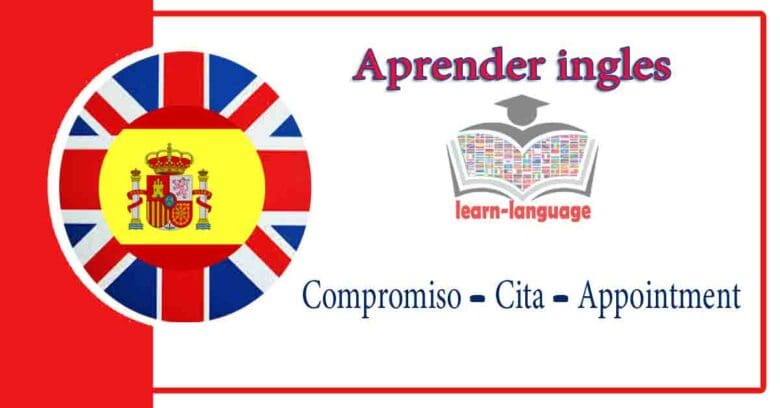Compromiso – Cita – Appointment – Aprender ingles

Compromiso – Cita – Appointment – Aprender ingles
- ¿Has perdido el autobús? / ¿Te dejó el autobús (am.)?
Did you miss the bus? - Te esperé por media hora.
I waited for you for half an hour. - ¿No tienes móvil / celular (am.)?
Don’t you have a mobile / cell phone (am.) with you? - ¡Sé puntual la próxima vez!
Be punctual next time! - ¡Toma un taxi la próxima vez!
Take a taxi next time! - ¡La próxima vez lleva un paraguas contigo!
Take an umbrella with you next time! - Mañana tengo el día libre.
I have the day off tomorrow. - ¿Quieres que nos encontremos mañana?
Shall we meet tomorrow? - Lo siento, pero no podré mañana.
I’m sorry, I can’t make it tomorrow. - ¿Ya tienes algún plan para este fin de semana?
Do you already have plans for this weekend? - ¿O ya te comprometiste para algo?
Or do you already have an appointment? - (Yo) sugiero que nos encontremos durante el fin de semana.
I suggest that we meet on the weekend. - ¿Quieres que hagamos un picnic?
Shall we have a picnic? - ¿Quieres que vayamos a la playa?
Shall we go to the beach? - ¿Quieres que vayamos a la montaña?
Shall we go to the mountains? - Te recojo en tu oficina.
I will pick you up at the office. - Te recojo en tu casa.
I will pick you up at home. - Te recojo en la parada de autobús.
I will pick you up at the bus stop. - ¿En dónde aprendió (usted) español?
Where did you learn Spanish?
Compromiso – Cita – Appointment
- ¿Puede (usted) también hablar portugués?
Can you also speak Portuguese? - Sí, y también yo sé hablar un poco de italiano.
Yes, and I also speak some Italian. - Pienso que (usted) habla muy bien.
I think you speak very well. - Los idiomas son bastante parecidos.
The languages are quite similar. - Yo puedo entenderlos bien.
I can understand them well. - Pero es difícil hablarlos y escribirlos.
But speaking and writing is difficult. - Aún cometo muchos errores.
I still make many mistakes. - Por favor, corríjame siempre.
Please correct me each time. - Su pronunciación es muy buena.
Your pronunciation is very good. - (Usted) tiene un poco de acento.
You only have a slight accent. - Uno puede deducir de dónde viene (usted).
One can tell where you come from. - ¿Cuál es su lengua materna?
What is your mother tongue / native language (am.)? - ¿Está (usted) tomando un curso de idiomas?
Are you taking a language course? - ¿Qué materiales de aprendizaje utiliza (usted)?
Which textbook are you using? - En este momento no sé cómo se llama.
I don’t remember the name right now. - El título no me viene a la cabeza.
The title is not coming to me. - (Yo) lo he olvidado.
I’ve forgotten it. - ¿Dónde está el ascensor?
Where is the elevator? - Necesito hablar con el gerente
I need to speak with the manager - La ducha no funciona
The shower does not work - El cuarto no tiene mantas
The room does not have any blankets - ¿Puede traerme otra almohada?
Can you bring me another pillow? - No han limpiado nuestro cuarto
Our room has not been cleaned - Necesitamos toallas para la piscina
We need towels for the pool - No hay agua caliente
There is no hot water - No me gusta este cuarto
I don’t like this room - Necesitamos un cuarto con aire acondicionado
We need an air-conditioned room - No tengo una reservación
I do not have a reservation
